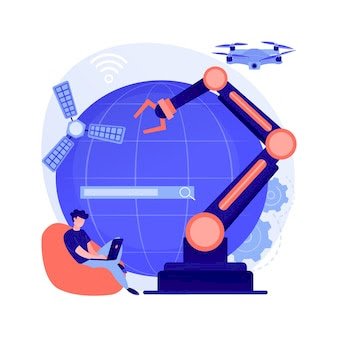You may have wondered how relevant AI will be and how it will transform the logistics industry. By automating processes and analyzing data in real time, AI can help logistics companies improve efficiency and optimize operations. In case you didn't know, AI can be used to track and predict demand, plan routes, and optimize warehouse operations.
By using AI for analytics, logistics companies can gain a competitive edge and improve their results. If you're curious about how AI is being used in the logistics industry to improve efficiency and accuracy, we recommend you keep reading this article.
Logistics Planning with AI
Artificial Intelligence has long been used in logistics planning to help move goods more efficiently. Especially in recent years, AI has become even more important in the logistics industry as the amount of available data has increased exponentially.
AI can help filter this data to find patterns and trends that can help optimize the movement of goods. Furthermore, AI can help predict demand and forecast inventory needs, which can help prevent stockouts and minimize waste.
AI and demand forecasting
The main advantage of using AI in logistics planning is its ability to account for a variety of factors that could affect demand. Clear examples include weather, news events, social media trends, and much more. Furthermore, AI also learns from past data to improve its accuracy over time.
The logistics market has been using AI to predict holiday shipping demand for several years. Since the market discovered that AI is particularly good at forecasting last-minute demand spikes, its use has continued unabated. Furthermore, AI is important because it can take steps to ensure sufficient capacity is available to meet peak demand, thus preventing delays and disruptions. In the future, AI is likely to become even more crucial for demand forecasting.
As more data becomes available, AI will be able to consider more factors and be more accurate. Furthermore, as AI improves its forecasting capabilities, companies will be able to use it to make more strategic decisions about their logistics.
Supply planning
The use of AI for supply planning in logistics is inevitable. The question is how to leverage AI to the company's advantage. The goal is to achieve an agile and efficient operation using the fewest resources possible. To utilize AI for supply chain visibility and management, the company must purchase hardware and software capable of capturing and storing data. This data can then be used to create models that can predict future demand.
The company will also need a plan for how to use this data and how to update its models accordingly. Using Artificial Intelligence for supply planning can help the company save money and become more efficient. The company will need to invest in hardware and software, but the benefits will be worth the investment.
AI-powered automated storage
AI can help improve warehouse efficiency and accuracy through automation. Using AI for automated warehousing can significantly improve warehouse efficiency and accuracy. A clear example of this is in a warehouse where robots are deployed to move inventory, and an AI system can be used to track the robots and ensure they are moving the correct items to the correct locations.
It's worth noting that AI can be used to track items as they are picked and packed, and to identify errors. This can help improve accuracy and reduce the time needed to fulfill orders. Furthermore, AI can be used to monitor warehouse conditions and identify areas that need improvement.
AI facilitates visual inspection and damage detection
The use of AI for visual inspection and damage detection in automated storage is becoming increasingly common. This is due to the many benefits AI can offer in terms of speed, accuracy, and efficiency. AI-based visual inspection can be used to quickly and accurately identify damaged products on a conveyor belt. This can save a considerable amount of time and money, as well as prevent potential safety hazards.
Furthermore, AI can be used to detect product defects before they reach the customer. This can help improve customer satisfaction and reduce returns. Overall, the use of AI offers many benefits to logistics services, especially in automated warehousing. It can help improve accuracy, efficiency, and safety, while also reducing costs.
AI transforms your business's sales and marketing.
The logistics industry is evolving rapidly and becoming more complex every day. To keep up with the competition, many logistics companies are turning to Artificial Intelligence to improve their sales and marketing.
AI can help logistics companies automate and improve many sales and marketing tasks. From lead generation and customer segmentation to pricing and product recommendations, AI can provide valuable insights into customer behavior, preferences, and trends.
Logistics companies that adopt AI will be able to better understand their customers and offer them more personalized and relevant services. AI-powered sales and marketing will also help logistics companies improve their operational efficiency and bottom line. This will also enhance the customer experience and satisfaction. AI has the potential to transform the logistics industry.
Through process automation and data analysis, AI can help logistics companies improve efficiency and optimize operations. AI can be used to track and predict demand, plan routes, and optimize warehouse operations. By using AI for analytics, logistics service companies can gain a competitive edge and improve their bottom line.






